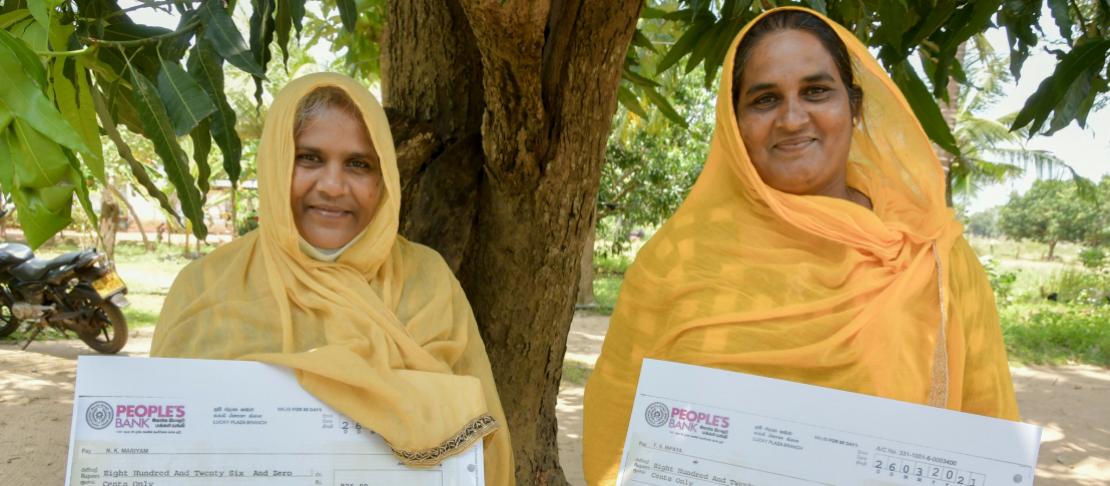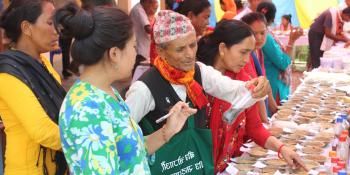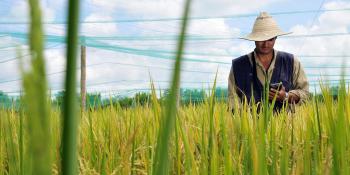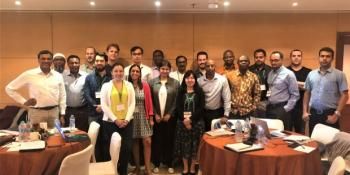Bundled agricultural insurance solutions: A Climatarian’s Gambit

Farming has often been quoted as one of the noblest professions, shouldering the responsibility of feeding the world. At the same time, it has been globally identified as one of the professions under the most threat in the face of climate change resulting in a higher degree of vulnerability for farmers as compared to the general population. According to the study by the International Water Management Institute (IWMI), an estimated 750 million people in South Asia are being exposed to various climate hazards coupled with poverty, limited access to resources and technical skills, with agriculture being identified as the most vulnerable sector.
Different technologies and solutions have emerged over the past few decades to enhance the adaptive capacity of farmers in the face of climate change. Still, the use of these technologies in isolation has limited the advent of a holistic solution. Bundling these solutions, however, has emerged as an effective hedging strategy to transform agricultural practice and provide climate safety nets among smallholder farmers.
A holistic approach to insurance, such as managing floods and droughts under the same umbrella of bundled insurance solutions, will allow the development of comprehensive risk mitigation plans and the rapid dissemination of information. This enables the managers of water resources and disaster response, communities, and farmers to better manage risks and their impact on agriculture and food security.
IWMI and its partners conducted pilot trials in India and Sri Lanka to promote innovations in bundled solutions among vulnerable smallholder farmers in order to transform agricultural risk management. The main objective of the pilots has been to provide Bundled Solutions of Index Insurance with Climate Information and Seed Systems to manage Agricultural Risks (BICSA). The following diagram highlights the four key components of this BICSA approach:

Crafting institutions for bundled solutions
In this context, IWMI, together with national partners and agribusiness, with the support from the CGIAR Research Programs on Climate Change, Agriculture and Food Security (CCAFS) and Water, Land and Ecosystems (WLE) organized a dialogue on 19th May 2021. The workshop was organised to brainstorm about possible strategies on scaling bundled solutions with seed systems, index insurance and climate information to manage agricultural risks in Sri Lanka with the following objectives:
- identify key scientific research in bundling solutions and development gaps;
- formulate a roadmap for an action plan, including outcome-oriented impact pathways;
- convene a collaboration of national and international organizations;
- inform policy planners and governments on the proposed interventions at a scale for integration in the development program; and finally,
- explore how the impact evaluation and progress of project implementation could assist in achieving the SDG and climate action targets.
During the session, Dr. Pramod Aggarwal, CCAFS Asia Program Leader, highlighted the need for bundling insurance solutions as a way to increase the adoption of insurance practices. He pointed out that the monthly costs of insurance premiums per hectare are much higher than the cost of traditional inputs such as seeds and fertilizers. By bundling agricultural solutions and insurance, these premium costs could be reduced.
Takeaways from the workshop
The workshop explored various bundling aspects of technologies, and the possible strategies to scale the approach. Drawing upon the lessons learned in the pilot studies carried out in Sri Lanka, Dr. Giriraj Amarnath highlighted the nine steps guiding principles for BICSA implementation. Hauke Dahl discussed the business model for scaling bundled solutions and listed four key functions for scaling the bundled solutions: Niche, Reach, Accelerate and Transform.
The presentation was followed by a discussion on the critical challenges in bundling solutions, adoption of viable agricultural technology and exploration of the public-private partnerships. The panel engaged in an in-depth discussion, resulting in the following guiding points for scaling:
- Policy consultation with all the stakeholders is necessary in order to bring policy developers and implementers together at the same platform.
- Explore and strengthen public-private partnerships in scaling bundled technology.
- Include gendered aspects in bundled solutions and facilitate gender inclusion in the process of scaling.
- Document the lessons learned and develop a user guide for stakeholders to facilitate the process of implementing and out scaling BICSA.




